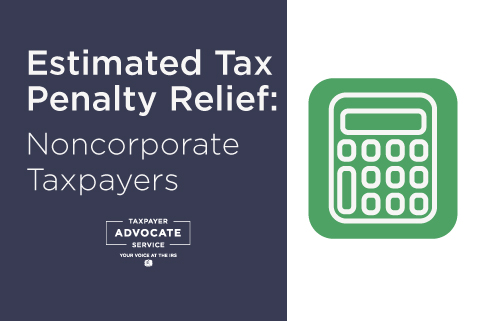

Prior to the Coronavirus Aid, Relief, and Economic Security (CARES) Act, noncorporate taxpayers were not allowed a deduction in tax years 2018 through 2025 for excess business losses. Instead, an excess business loss, calculated and reported on Form 461, was carried over to the following year as a net operating loss.
The CARES Act reinstated the excess business loss deduction for tax years 2018, 2019, and 2020.
If you filed your 2018 and/or 2019 federal income tax return and were subject to the limitation on deducting excess business losses, you can file amended return(s) to claim the excess business loss deduction.
However, if you had an unallowable excess business loss deduction in 2018 and originally calculated your 2019 estimated tax liability in anticipation of carrying the loss forward to 2019, you may find yourself subject to the estimated tax penalty for tax year 2019.
In Notice 2021-8, the IRS provides penalty relief for your 2019 estimated tax payments that were due on or before July 15, 2020, in such a situation. An estate or trust that is treated as an individual and subject to the estimated tax penalty may also be eligible for relief.
This penalty relief applies only to the estimated tax penalty incurred for tax year 2019 due to the CARES Act’s amendment to Internal Revenue Code (IRC) § 461(l)(1)(B), Limitation on excess business losses of noncorporate taxpayers. It does not apply to a 2019 estimated tax penalty that is attributable to any other CARES Act provision, including the CARES Act amendment to IRC § 172(b), Net Operating Losses.
To qualify for the penalty relief, you must:
The full instructions for requesting a waiver of the penalty are included in Notice 2021-8 in Section 4 under “Qualifying Waiver Request.” Be sure to appropriately label your request for relief according to the instructions.
Topic related resources